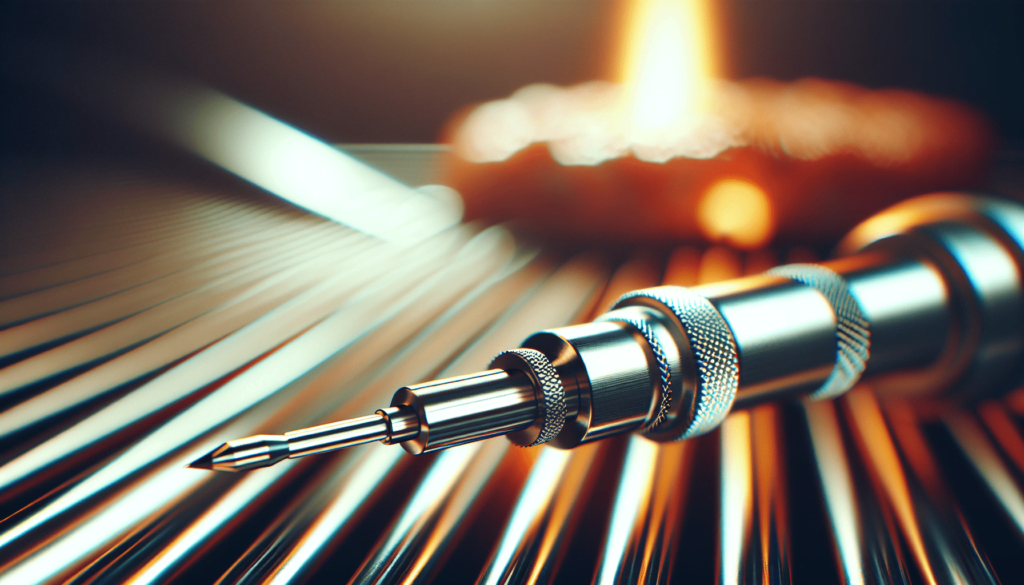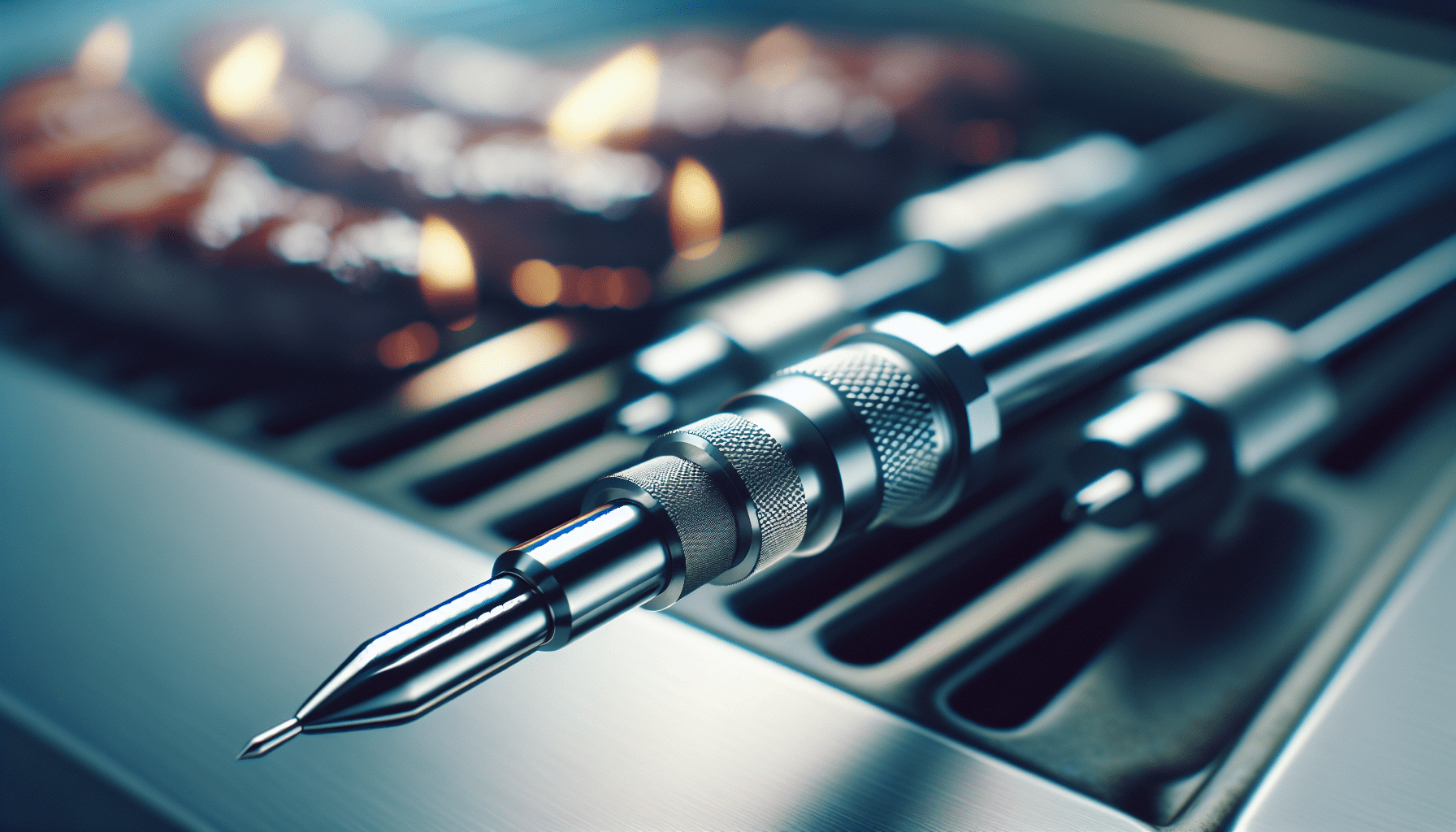Have you ever wondered how a grill igniter electrode functions? Whether you’re an avid grill master or just getting started, understanding how this essential component works can elevate your grilling game. In this article, we’ll break down the ins and outs of grill igniter electrodes, so you can feel knowledgeable and confident next time you fire up the grill.

What is a Grill Igniter Electrode?
A grill igniter electrode is a small but crucial part of your grilling setup. It’s responsible for creating the spark that ignites the gas and starts the grill. Without it, you’d be stuck using old-fashioned methods like matches or lighters, which can be cumbersome and unsafe.
Basic Components
Before we dive deeper, let’s break down the primary components of a grill igniter electrode:
| Component | Description |
|---|---|
| Electrode | The metal rod that emits the spark. |
| Igniter Module | The control unit that generates the electrical pulse. |
| Battery | Powers the igniter module. Typically AA or AAA. |
| Ignition Wires | Connects the igniter module to the electrode. |
| Grounding Rod | Ensures the electrical circuit is completed for the spark to occur. |
Understanding these components helps you see how they all work together to create that crucial spark.
How Do Grill Igniter Electrodes Work?
Grill igniter electrodes work on a simple principle: creating an electrical spark to ignite the gas. The process usually involves several steps, which we will outline below. This part is highly critical since it determines the effectiveness and reliability of your grill.
The Ignition Process
- Pushing the Ignition Button: When you press the ignition button, it sends a signal to the igniter module.
- Generating a Pulse: The igniter module converts the signal into an electrical pulse.
- Traveling Through Wires: This electrical pulse travels through the ignition wires to the electrode.
- Creating a Spark: When the pulse reaches the electrode, it generates a spark by jumping across the gap to the grounding rod.
- Igniting the Gas: The spark then ignites the gas coming out of the burners, which starts the grill.
The Role of the Battery
The battery powers the igniter module and ensures that the electrical pulse has enough oomph to create a spark. If your igniter isn’t working, the first thing to check is often the battery.
Types of Grill Igniter Electrodes
There are several types of grill igniter electrodes, each with its own advantages and drawbacks. Knowing the differences can help you make an informed decision when buying or replacing one.
Piezo Igniters
Piezo igniters use a piezoelectric crystal to generate a spark. When you press the ignition button, it applies pressure to the crystal, creating an electrical charge.
Pros:
- No battery required
- Generally reliable
Cons:
- Limited lifespan
- Higher failure rate over time
Battery-Powered Igniters
These igniters use a battery to generate the electrical pulse needed for the spark.
Pros:
- More powerful spark
- Generally longer lifespan
Cons:
- Requires regular battery replacement
- Can fail if the battery dies
Electronic Igniters
These are often found in high-end grills and can be either battery or mains-powered.
Pros:
- Highly reliable
- Longer lifespan
Cons:
- More expensive
- Complex to repair
Common Issues and Troubleshooting
Even the best igniters can run into problems. Here are some common issues and how you can troubleshoot them.
| Issue | Potential Cause | Solution |
|---|---|---|
| No spark | Dead battery | Replace the battery |
| Weak spark | Corrosion on the electrode | Clean the electrode |
| Irregular sparking | Loose wiring | Check and tighten all connections |
| Spark but no ignition | Gas flow issues | Ensure the gas supply is sufficient and unobstructed |
| Delayed ignition | Faulty igniter module | Consider replacing the igniter module |
By diagnosing these common issues, you can often fix the problem yourself without needing professional help.

How to Maintain Your Grill Igniter Electrode
Regular maintenance can extend the life of your grill igniter electrode. Here are some tips to keep it in tip-top shape.
Regular Cleaning
Over time, dirt and grease can accumulate on the electrode, which may impede its ability to create a spark. Cleaning it regularly can prevent this.
Steps:
- Turn off the gas supply.
- Carefully remove the electrode.
- Use a soft cloth and mild cleaner to wipe away any debris.
- Reinstall the electrode.
Check the Battery
A dead or weak battery is the most common reason for a failed ignition. Checking and replacing the battery periodically ensures consistent performance.
Inspect for Corrosion
Corrosion can occur on the electrode and the connections, affecting performance. Inspect and clean these areas as needed to maintain a strong spark.
How to Replace a Grill Igniter Electrode
Sometimes, despite your best efforts, you’ll need to replace the grill igniter electrode. Here’s a quick guide on how to do it.
Tools Needed
- Screwdriver
- New electrode
- Wrench
- Gloves
Steps to Replace
- Turn Off the Gas: Always ensure the gas supply is turned off before working on your grill.
- Remove the Old Electrode: Use a screwdriver to remove the old electrode.
- Install the New Electrode: Place the new electrode where the old one was and secure it with screws.
- Reconnect Wires: Connect the ignition wires to the new electrode.
- Test the Ignition: Turn the gas back on and test the ignition to ensure it’s working correctly.
Replacing the electrode isn’t as daunting as it might seem and can save you the cost of professional repairs.

Safety Guidelines
Proper safety measures are crucial when dealing with grill igniter electrodes. Here are some safety guidelines to follow.
Turn Off Gas Supply
Always turn off the gas supply before doing any maintenance or replacement work. This can prevent accidental ignition and potential injury.
Use Proper Tools
Using the correct tools ensures a secure fit and reduces the risk of damaging the components.
Read the Manual
Your grill’s manual has specific instructions and safety guidelines unique to your model. Adhering to these can prevent problems and ensure safe operation.
Wear Protective Gear
Gloves and safety glasses can protect you from accidental shocks and other injuries while working on the grill igniter electrode.
Environmental Considerations
You might not think of a grill igniter electrode as an environmental factor, but there are a few things to keep in mind.
Battery Disposal
Improperly disposed of batteries can be harmful to the environment. Always recycle them in accordance with local regulations.
Material Reuse
Some parts of the electrode can be recycled or reused, helping to reduce waste.

Summary
You now have a comprehensive understanding of how grill igniter electrodes function. These small components play a crucial role in getting your grill up and running, and knowing how they work can greatly enhance your grilling experience. By understanding their components, types, maintenance, and safety guidelines, you’re well-equipped to troubleshoot or replace them if needed. So next time you press that ignition button, you can appreciate the technology and know-how that goes into creating that perfect spark.
Feel free to share your thoughts or ask any questions you might have about grill igniter electrodes!

